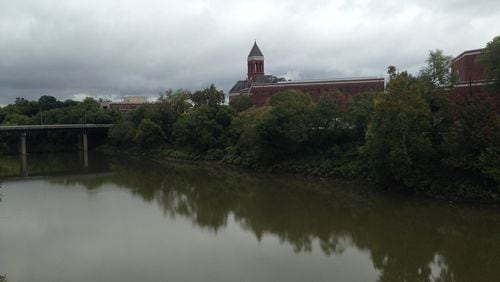Centre, Ala., has become the latest to sue over drinking water allegedly polluted by Georgia’s carpet industry.
At issue are the chemical compounds perfluorooctanoic acid and perfluoroctane sulfonate, known as PFOA and PFOS, which were used for decades to make carpets resistant to stains. They also were used in a variety of consumer goods from cookware to fast food wrappers.
Manufacturers began phasing them out when scientific studies linked the compounds to health problems from low fetal birthrate to cancer, but the inorganic chemicals have infiltrated the ground, air and water of communities around the nation where they were used in manufacturing.
In the lawsuit filed last month in Alabama , the Centre public water utility claims carpet companies in Dalton, Ga., were negligent in allowing PFOA and PFOS to leech into the Coosa River basin, which the city uses for its drinking water. The suit seeks unspecified damages for filtering out the chemicals and other costs.
Gadsden, Ala., filed a similar suit last year, but in Georgia cities have swallowed the costs associated with the chemicals without filing suit.
Rome City Commissioner Craig McDaniel, who chairs the Rome Water and Sewer Committee, said the city has purchased new filters and decreased its reliance on the Oostanaula River, which has levels of PFOA and PFOS above federally recommended guidelines.
“We want to be progressive and be ahead of the curve and we want to assure the citizens that our drinking water is pure,” he said.
Cities across north Georgia spent decades in the last century luring manufacturers to locate their plants along their waterways, he said. Now we are dealing with the contamination they left behind.
“Communities have the burden of providing clean water, so we do whatever we have to do,” he said.
Why aren't government regulators dealing with these pollutants? Read this week's AJC Watchdog column to find out more.







